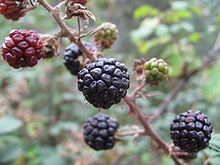 The big scary question: What will happen after antibiotics cease to work? And people start dying by the millions from infections that used to be easily treated? We are fast approaching that point of total antibiotic resistance, with superbugs that resist all antibiotics. More and more disease-causing bacteria are rapidly evolving immunity to every existing antibiotic (see short video). Soon routine surgeries and minor wounds or even scratches could kill a person. About 70% of antibiotics are currently being used (much of it unnecessary) in farm animals - why aren't governments putting a stop to that? Resistant bacteria already result in the deaths of about 700,000 people globally, but experts predict that by 2050 they will kill 10 million people annually.
The big scary question: What will happen after antibiotics cease to work? And people start dying by the millions from infections that used to be easily treated? We are fast approaching that point of total antibiotic resistance, with superbugs that resist all antibiotics. More and more disease-causing bacteria are rapidly evolving immunity to every existing antibiotic (see short video). Soon routine surgeries and minor wounds or even scratches could kill a person. About 70% of antibiotics are currently being used (much of it unnecessary) in farm animals - why aren't governments putting a stop to that? Resistant bacteria already result in the deaths of about 700,000 people globally, but experts predict that by 2050 they will kill 10 million people annually.
What is to be done? New antibiotics? Big pharma generally isn't interested - not enough profit. Using good bacteria and other microbes to dominate over pathogenic microbes? (For example, using L. sakei to treat chronic sinusitis) Bacteriophages? Essential oils? The following is a wonderful article about another possibility: ethnobotany - the use of medicinal plants. Cassandra Quave is the ethnobotanist based at Emory University discussed in the article. From the New York Times:
Could Ancient Remedies Hold the Answer to the Looming Antibiotics Crisis?
Ethnobotany is a historically small and obscure offshoot of the social sciences, focused on the myriad ways that indigenous peoples use plants for food, shelter, clothing, art and medicine. Within this already-tiny field, a few groups of researchers are now trying to use this knowledge to derive new medicines, and Quave has become a leader among them. Equally adept with a pipette and a trowel, she unites the collective insights of traditional plant-based healing with the rigor of modern laboratory experiments. Over the past five years, Quave has gathered hundreds of therapeutic shrubs, weeds and herbs and taken them back to Emory for a thorough chemical analysis. ...continue reading "Botanical Remedies May Be In Our Future"
